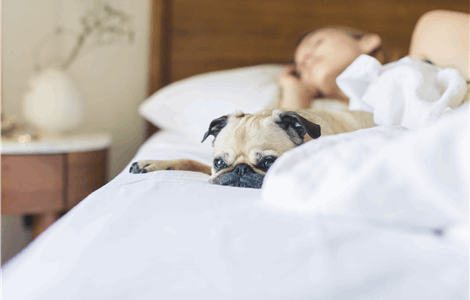
Although you may not be able to manage the circumstances that interfere with your sleep, you may develop habits that will help you sleep better at night. Here are some useful tips and when to call our home GP for insomnia in Fuengirola.
1. Maintain a regular sleep routine
Allow for no more than eight hours of sleep every night. An adult in good health should get at least seven hours of sleep per night. The majority of folks don't need more than eight hours of sleep to reach this objective.
Every day, go to bed and get out of bed at the same hour. Try to keep the difference between your weekday and weekend sleep schedules to no more than one hour on weeknights and one hour on weekends. Maintaining consistency helps your body's sleep-wake cycle to function properly.
If you are unable to fall asleep after around 20 minutes, exit your bedroom and engage in some calming activity. Relax by reading or listening to peaceful music. When you're exhausted, go back to bed. Repeat as many times as necessary.
2. Incorporate regular physical exercise into your daily schedule
Regular physical exercise might help you sleep better at night. However, avoid being physically active too close to nighttime.
It may also be beneficial to spend some time outdoors every day. If this doesn’t work, our home GP for insomnia in Fuengirola can help.
3. Make a setting favourable for relaxation
Make a sleeping space that is comfortable and inviting. Often, this entails keeping things chilly, dark, and quiet. It is possible that exposure to light will make it more difficult to fall asleep. Avoid using light-emitting screens for an extended period of time just before night. Room-darkening shades, earplugs, a fan, and other equipment may help you achieve a comfortable and safe atmosphere for you and your family.
It is possible that engaging in relaxing activities before night, such as taking a bath or practising relaxation methods, can help you sleep better.
4. Avoid taking naps throughout the day
Long naps throughout the day might make it difficult to sleep at night. If you decide to take a nap, keep it to a maximum of 30 minutes and avoid napping late in the day if possible.
If you work evenings, on the other hand, you may find that you need to take a nap late in the day before work in order to make up for lost sleep.
5. Pay close attention to the foods and beverages you consume
It is not advisable to go to bed hungry or full. Avoid eating heavy or substantial meals within a couple of hours of going to bed. It's possible that your discomfort will keep you awake.
Nicotine, caffeine, and alcohol are all substances that should be avoided. The stimulating effects of nicotine and caffeine may last for many hours and have a negative impact on the quality of one's sleep. Furthermore, even while alcohol might make you feel drowsy, it can cause sleep disturbances later in the night. If you need more information, our home GP for insomnia in Fuengirola can help.
6. Keep your anxieties under control
Prior to going to bed, make an effort to address any problems or issues you may have. Make a list of everything that's on your mind and put it away for tomorrow.
Stress management may be beneficial. Begin with the fundamentals, such as organizing your time, defining priorities, and delegating responsibilities. Meditation may also help to alleviate anxiety.
When to call our home GP for insomnia in Fuengirola
Almost everyone has a restless night now and again, but if you are experiencing frequent sleeplessness, you should call our home GP for insomnia in Fuengirola. Identifying and addressing any underlying problems will assist you in getting the rest you need and deserve at night.